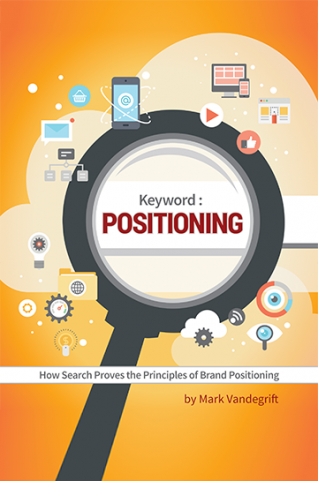Your business and your competitors have been Googlized.
Google is the new Yellow Pages for everything. If we want to know how many times man landed on the moon, we Google it. If we want to lease a copier or hire a financial services firm, we start our search with Google.
Marketing is about specialization these days. Specialization might be the most powerful tool to fight increased competition. Without specialization, the alternative is to have a lower price. Most businesses don’t find that an attractive position.
With more and more competition, categories naturally divide and then subdivide and then sub-subdivide. We also see the creation of new categories by the disruption of old categories and by the introduction of new technologies.
Google has poured gasoline on the specialization fire. Google makes it so easy to find what we seek. It acts as a microscope, giving us the ability to refine our search to go as deep as we wish.
In the business-to-business world, companies search for specialists. For example, a company is able to search not only for a new accounting firm with experience in its own industry, but also for one with further expertise in auditing.
Because customers can so readily find precisely the specialist they seek, companies need to adjust strategy and often reposition to focus on a specialty.
Keyword is focus
Today, strategic brand positioning is vital — for growth and for survival.
Be clear on what product or service category you’re in. Is it selling tires, mowing lawns, or making bread? Next, and even more importantly, how are you differentiated from others in that category? Is it snow tires, commercial lawn mowing, or gluten-free bread? It might be necessary to further subdivide or specialize.
The point of differentiation can’t be just doing it “better,” it must be about doing it “differently.” What’s your specialization?
Determining our focus can be difficult. We hesitate to focus because we fear we will miss out. We call that FOMO: fear of missing out.
Rest assured it’s better to be the expert with deep knowledge somewhere than to be surfing the surface everywhere. Being everything for everybody is no longer a winning strategy.
Thanks to Google, it is highly likely your prospect either found you on the web or is checking you out on the web. Your online presence has become your key to new business.
How do we win with Google?
Focusing on Google for your online marketing makes sense because it owns more than 94 percent of online search. The next two search engines, Bing and Yahoo, have about 2 percent market shares. YouTube, owned by Google, is the second largest online search engine.
Google’s customer is you, the advertiser. The searchers, your prospects, are Google’s product. Your prospects are what Google sells to you — the advertisers.
Getting a lead to make a sale is accomplished by your company showing up on the first page of search results when your prospect Googles a particular term.
Searchers (your prospects) perceive the results as a ranking. Searchers believe the results on the first page must be the best and those on the top of the first page must be the best of the best.
There are two ways to get on Page 1 of the results. One way is Google AdWords, now called Google Ads. You decide how much you want to spend, then pick search terms that your prospects are using. Google has tools to help with this process.
You’ll end up on Google’s search results page near or at the top with a little box with the word “Ad” in it. When someone clicks on your ad, you pay Google. That’s one of the ways Google has become the largest and most profitable advertising medium in the world.
‘Organic searches’
A search result not marked as an Ad is known as “organic.” You don’t have to pay Google if someone clicks on an organic result.
To appear in organic search results involves a group of activities known as search engine optimization (SEO). The world of SEO is big and broad, but several tactics are considered essential in establishing great visibility in organic search.
For instance, each page of your website should be written, designed, and tagged to be relevant to a particular search term.
Additionally, content must be aligned to your brand’s position and published online. The content must be relevant and meaningful to your customers. The content must also be differentiated from your competitors. That is strategic brand positioning.
Well-crafted content might include articles, white papers, newsletters, and blogs and will increase your organic search results.
Those results, organic or paid, are known as campaign ads. Notice that when you search, each result has a headline, a web address, and copy.
The objective is to get the searcher to click on the result and go to whatever you have designated as the landing page. That page could be one of your website pages or a special page created explicitly for the campaign.
While Google’s geeky founders may truly believe in their stated objective “to organize the world’s information and make it universally accessible and useful,” Google is in the business of getting you to click so they get paid. Google processes more than 40,000 searches every second — over a trillion each year.
Google’s reach and influence is indisputable. Together, Google and Facebook accounted for 84 percent of all global digital investment in 2017.
With such numbers as evidence, it is clear to see why your company must embrace the Googlization of business.



